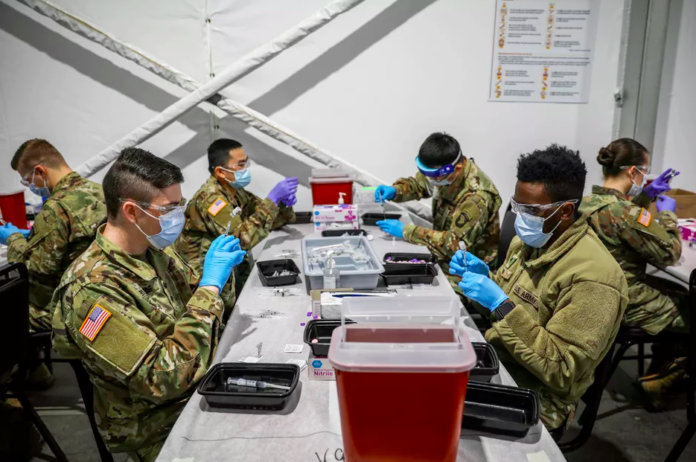By Amanda Ojeda
It all started in the Walter Reed Army Institute of Research, a lab-based in Silver Spring Maryland, and administered by the U.S. Department of Defense. In early 2020, it received a DNA sequencing of the COVID-19 virus. Through this sequence, along with nearly 2 years of research, the U.S. Army recently announced that they have created a single vaccine against all COVID and SARS variants.
The vaccine is a Spike Ferritin Nanoparticle (SpFN) COVID-19 vaccine, which utilizes a spike protein attached to ferritin, a common protein found in almost all living organisms. The spike protein has 24 faces, which has proven beneficial for testing since multiple coronavirus strains can be placed on the protein at the same time. The vaccine broadens the scope of possible storage environments, as temperatures can now range from 36 to 46 degrees Fahrenheit for up to six months and at room temperature for up to one month.
Currently, the vaccine is in the early stages of clinical development; specifically, phase 1, meaning the vaccine demonstrated positive results in animals and is now being tested in small groups of people. The vaccine is being tested in two ways: once with two shots that are 28 days apart, and another with a third shot after six months.
Dr. Kayvon Modjarrad said the vaccine is ready to move on to phases 2 and 3, since “so far everything has been moving along exactly as we had hoped.” These subsequent phases will help determine safety and efficacy in comparison to the current vaccines. In terms of what variants this vaccine works against, it encompasses all of the past variants. So far, the results have been promising in both animals and humans. The vaccine itself was not tested with the Omicron variant, but the variant is being tested side by side with the human trial samples. These will be used as neutralization assays to test whether or not the vaccine can inhibit the growth of a virus.
Modjarrad concludes that “Our strategy has been to develop a ‘pan-coronavirus’ vaccine technology that could potentially offer safe, effective and durable protection against multiple coronavirus strains and species.” Talk about a pan-coronavirus vaccine has been present for almost as long as the pandemic, but the army is the first group to show positive test results for a “universal” coronavirus vaccine. The full report on the current trials is expected to be released as soon as March.

